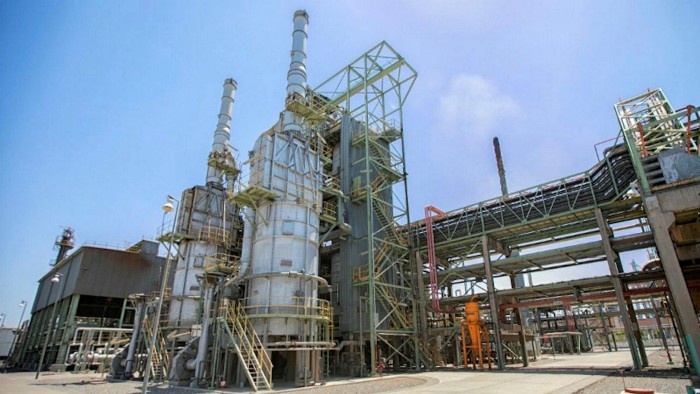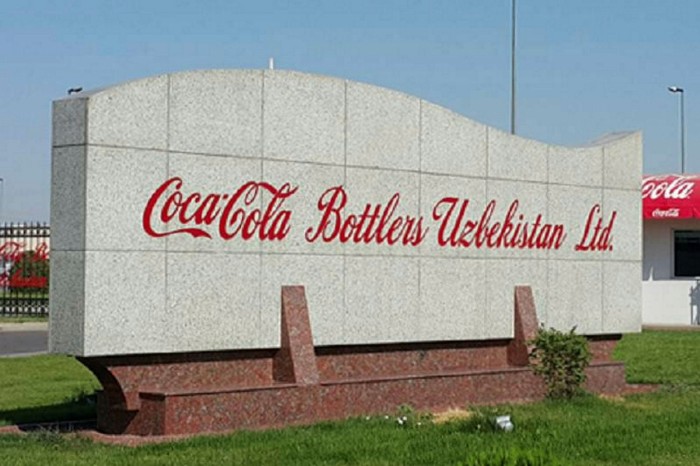Uzbekistan seeks to shed state assets

Roula Khalaf, Editor of the FT, selects her favourite stories in this weekly newsletter.
Uzbekistan wants to privatise three quarters of everything the state owns by 2025. And not just for the money.
With an asset sale, the Central Asian country is addressing the problems at the heart of many enterprises that can trace their roots to the Soviet era: inefficiency and a lack of regulation.
The state controls 3,000 assets in Uzbekistan, or 50 per cent of its economy, according to the State Asset Management Agency, or Sama — the organisation in charge of Uzbekistan’s privatisation. In the US, the comparable figure is 11 per cent. In Japan, it is 5 per cent.
“An appointed person will never treat a business as if it was theirs,” explains Sama head Akmalkhon Ortikov. “If we don’t develop the private sector, there will be no further economic growth. So we are consciously moving towards reducing state share in the economy.”
In the past five years, since Shavkat Mirziyoyev became president, the country has been building a market-based economy with reforms such as currency liberalisation and tax reduction. But, recently, it has been criticised by investors for moving too slowly on its privatisation promises.
So, in February, Mirziyoyev said the country would speed up privatisation and officials in charge would be evaluated based on the number of state enterprises they sell.
It worked. In the past few months, assets sold well, raising $105m in the first half of this year, compared with $45m raised in the past three years, according to Sama.
“This time, it seems for real — they have a plan,” says Dakota Irvin, head of research at Bluestone investment bank, which focuses on Central Asia. “Over the past years, there’s been a lot of lofty rhetoric that hasn’t been matched by deeds. But, since this winter, they are accelerating selling off some state assets,” he says.
The first sales included real estate in the capital city of Tashkent, recreation sites, several wine and alcohol plants and, most recently, a stake in a Coca-Cola bottling plant. Several foreign investors praised the sale for its transparency and efficiency.

However, the first large enterprise up for sale was the entire Fergana refinery, one of the country’s three oil-processing plants.
Some assets have had their partial stock market listing put back to 2023, to give the state time to bring them into line with international reporting standards and secure an international rating. These include: gold and copper producers Almalyk and Navoi Mining and Metallurgy Combine; oil and gas producer Uzbekneftegaz, gas transportation operator Uztransgaz, metals producer Uzmetkombinat, Uzbekistan Airways, National Bank, Halk Bank and Agrobank.
Ben Godwin, associate director at consultancy Prism Political Risk Management in London is less certain that big companies can be reformed quickly, though. “I am sceptical that the government will be able to reform these companies to a point where either strategic or portfolio investors will be ready to take the plunge in the near term, which for any government would be a momentous task,” he says.
There are still “concrete problems to do with legislature, with the system, with mentality”, adds Ortikov, who is also a former deputy economy minister and deputy governor of Fergana and Namangan.
Before 2021, he says, the main problem was the pricing of assets; now it the poor management. “We all know that post-Soviet countries have grey economies. With privatisation, we are moving the grey money into the legal economy,” he says — referring to behind-the-scenes deals.
To address that, the government is working on an update to a 1994 law on state property management, to give more power to observers, and to make sure they are elected rather than appointed.
Timur Ishmetov, the finance minister, bets on selling mostly small stakes in banks of between $3m and $5m to signal that the country is ready. “Investors in a bank do not come for a short time. They invest for decades. So if there are investors in the banking sector, it’s a positive signal,” he says.
The country wants to sell up to eight banks by 2025. Ipoteka is the first in line this year, widely expected to be acquired by Hungary’s OTP bank. The value of the sale has not been disclosed.
“The goal here is not to attract money, the goal is to attract quality,” Ishmetov says, adding that he wants a strategic investor from Europe that could serve as an example by changing one bank.
But success will depend on the country’s ability to attract foreign management talent. Attracting managers from outside Uzbekistan can lead to a breakthrough in business quality, says Oybek Shaykhov, secretary-general of Europe-Uzbekistan Association for Economic Cooperation in Brussels.
“This privatisation stage began when Uzbekistan realised by attracting managers from abroad how ineffective their homegrown management was,” he says.

Comments